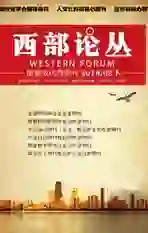Translation Strategies and Reflection on Culturally—Loaded Words in Peach Blooms Painted with Blood
2019-03-20XUYing-ying
XU Ying-ying
Abstract: This article aims to explore translation strategies of culturally-loaded words in the translation of Peach Blooms Painted with Blood and a reflection.Methods of research,such as English-Chinese comparison,analysis,introspection,are utilized in this article.It is inevitable that there are some factors of untranslatability in the translation of culturally-loaded words.
Key Words: Peach Blooms Painted with Blood;culturally-loaded words;translation strategy; domestication;foreignization
I.Introduction
Peach Blooms Painted with Blood is one of the four important Chinese dramatic works written in rhyme from the 13th to the 19th century.It describes the love story between Master Hou and Fragrant Lee.As for the study of the book,only 1 thesis about the translation of the classic is found in CNKI and merely 1 research is found by Google,which is,to some degree,the innovation and significance of this article.
II.Overview of Translation Strategies
Terms of domestication and foreignization was put forward by Lawrence Venuti,an American Italian translation theorist,in the Translators Invisibility A History of Translation in 1995.Foreignization makes translation exotic,that is,the foreign culture can be reflected in the rendition.And domestication leaves translation fluent enough that readers are familiar with it,since it is in accordance with readers culture.
Ⅲ.Analysis of the Translation of Culturally-Loaded Words
Source Text:
[生笑介]秀才中状元,有甚么不肯处。
[小旦]既蒙不弃,择定吉期,贱妾就要奉攀了。 (By KONG Shang-ren )
Translation Version A:
Hou(laughing):I am like the winner of the laurel crown.How could there be anything I do not like?
Mother:If you would condescend to accept my daughter,we should choose an auspicious day for the ceremony.(Translated by XU Yuan-chong&XU Ming)
Translation Version B:
“How can I refuse?Can a scholar refuse to be the best in the country?”Hou Chaozong answered excitedly.
When she heard that Hou Chaozong was to be promised to Xiangjun,Li Zhenli said,“If my daughter is to be united with the socially elevated could you please pick an auspicious day?” (Translated by KUANG Pei-hua, et al )
According to Zhang Hong-yan,culture-loaded words enbodies rich connotation based on the original meaning or conception.In China,秀才originally refers to excellent people in his capacity.And it developed into students in the school of county or province,a special reference of those scholars who have experienced reading Four Books and the Five Classics.The translation of 秀才is “I” and “scholar”,with both of them using a translation strategy of domestication.The difference between them lies in that the former is an arena version while the latter a literary one.However,the meaning of “scholar” is different here from that in the eyes of a foreigner.According to Collins dictionary, “ A scholar is a person who studies an academic subject and knows a lot about it.” That is to say,a scholar equals a researcher.While 秀才could hardly be called a researcher. And the fact is that there are no other appropriate words in English language,which is one of the reasons of untranslatability.状元denotes the most excellent one in the examination of Dianshi (palace examination) in ancient China.The translation of 状元in the two translation versions is “the winner of the laurel crown” and “the best in the country” respectively,with the former takes the translation strategy of domestication and the latter foreignization.The word “laurel” refers to any of a genus of evergreen trees or shrubs of the laurel family,native to Europe and widely cultivated in the U.S.And “laurel crown” means victory. Translation “the best in the country” is with a Chinese favor,since Dianshi(palace examination) is superior in the imperial examination in Tang,Song,Yuan,Ming and Qing dynasties,with the scale of the whole nation.While a foreigner might be confused about it due to its ambiguity——in which field is the person best.
Ⅳ. Reflection
From the perspective of intercultural communication,I notice that some points of translation is accessible while others not.The usage of domestication could be attributed to target readers comprehension and acceptance in most cases.Sometimes,foreign readers could understand the translation though it is not faithful to the source text.Thus,readers acceptance is of the great importance.Untranslatability do exist in translation. It can be attributed into three main factors: translators incompetency、the defect of languages as well as the difference of cultures.
Ⅴ.Conclusion
Translation strategies of domestication、foreignization and the intermingle of them could all be employed when necessary.Moreover,there is unavoidable factors of untranslatability in the process of translating culturally-loaded words.
作者簡介:徐营营(1989- ),女,回族,山东菏泽人,贵州师范大学2017级英语笔译专业硕士研究生,研究方向为翻译理论与实践。
